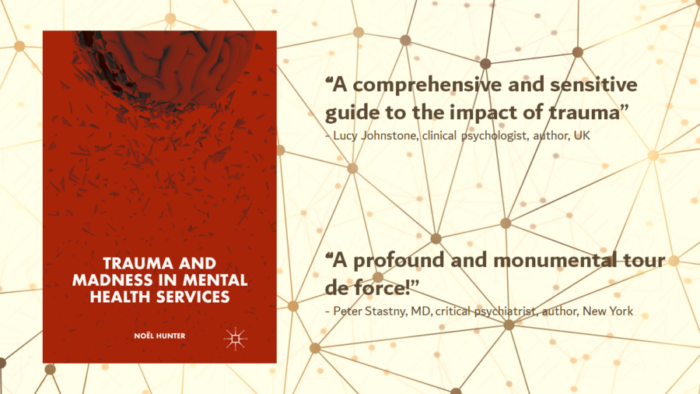How do survivors of child abuse, bullying, chronic oppression and discrimination, and other developmental traumas adapt to such unimaginable situations? It is taken for granted that experiences such as hearing voices, altered states of consciousness, dissociative states, lack of trust, and intense emotions are inherently problematic. But what does the evidence actually show? And how much do we still need to learn?
Article mentions and reviews
Book review: trauma and madness in mental health services – Psychosis
On Trauma and Madness in Mental Health Services – Beyond Meds
Politics and Psychiatry: the Cost of the Trauma Cover-Up – CounterPunch
Psychiatric Re-Traumatization: A Conversation About Trauma and Madness in Mental Health Services – Mad in America
What readers have to say…
“A comprehensive and sensitive guide to the impact of trauma”
“Searing indictment of the psychopharmaceutical-industrial complex with several liberating proposals for immediate and fundamental change”
“Everyone should read this book!”
“Terrific book!”
“Anyone who is invested in changing the nightmarish status quo of mental health services in America should read this book!”
“Groundbreaking and beautiful book … making a profound difference!”
“Can highly recommend to anyone with an interest in mental health”
“I feel heard”

